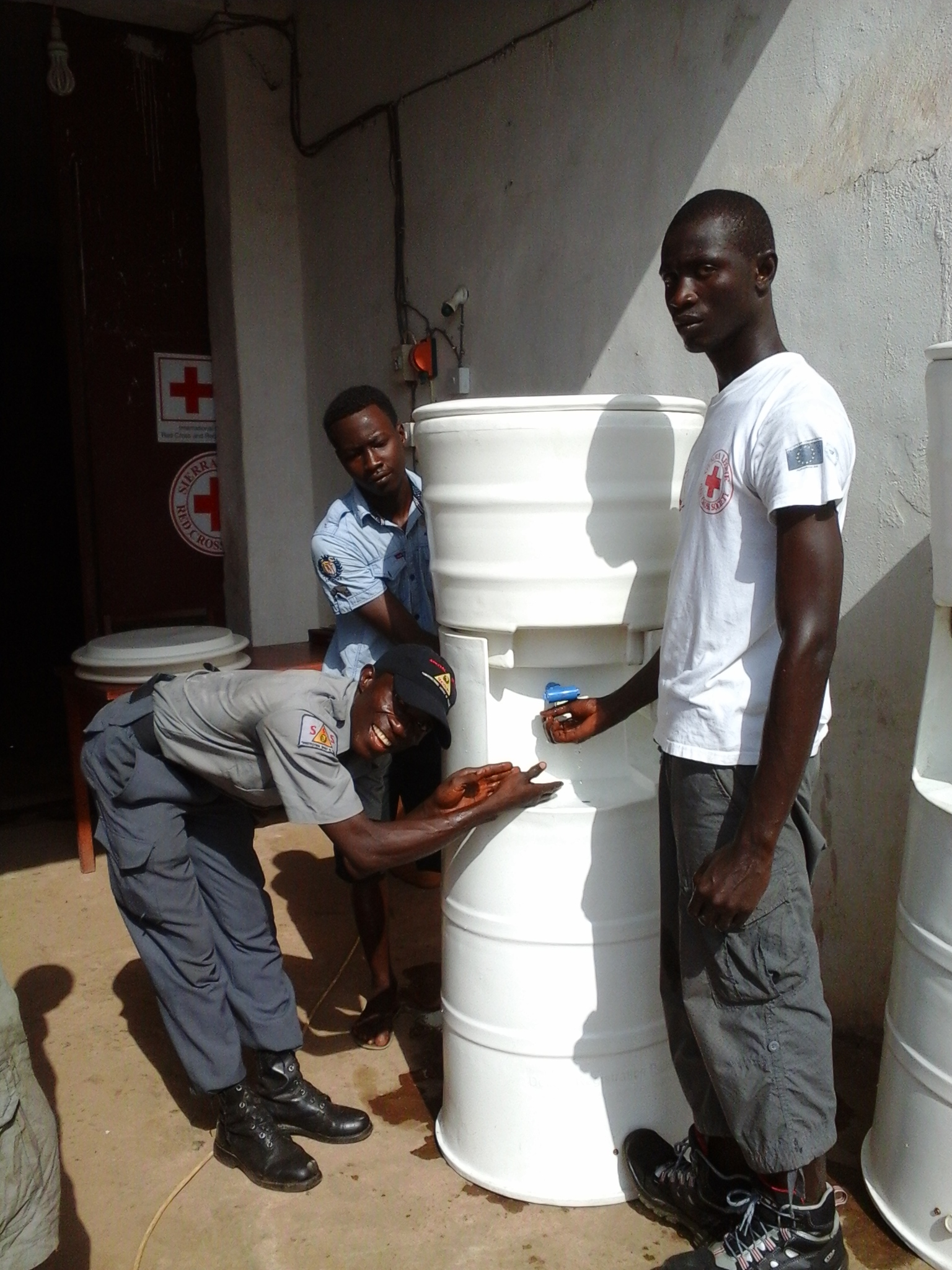Development of communal handwashing facilities for emergency response
Technical Design Criteria
IFRC is looking for handwashing equipment for communal latrines. Oxfam is looking for solutions at the household level and more information can be found here.
Definition:
A communal handwashing facility is defined in this project as a pre-fabricated handwashing device that can be stocked within emergency response kits and be deployed in the context of emergency response. The design should response to the need of washing hands near sanitation facilities (communal latrines and open defecation areas at least) in the context of a displaced camp or community.
Design criteria:
| Suitability | Suitable for community, camps and institutions (clinic and school). |
| Capacity | Volume (litres) of the water container, considering: *1 handwashing device / block of 4-6 latrines. *Serving a minimum of 80-120 people/day, washing hands 2 times / day at minimum. *Number of handwashing events / day (min. 160-240). *Number of re-filling of water container (max. 1 times / day, preferable 2-3 times per week). |
| Construction | Quick and easy to assemble from flat pack No technical skills or special tools required Friendly user instructions – pictorial based instructions |
| Transport | Weight and volume (easy transportable) |
| Durability / Strength | Life span of minimum 4 months Exterior conditions, exposed to extreme weather |
| Security | Theft-resistant design |
| Cost | Manufacturing cost (CHF) |
| Water saving | 1 handwashing performed with less than 300 ml of water Spray water flow / self-closing taps |
| Replicability | Locally replicable |
| Safety | One-touch tap to avoid re-contamination Foot operated device |
| Visibility | Surface area for stickers |
| Recognizable | Easily identified as a handwashing facility, not mistaken for a water collection point |
| Soap facility | Bar or liquid soap holder, capability for both preferred Theft-resistant design |
| Acceptance | Simple to operate, simple appearance |
| Children, gender and cross generation friendly | Unisex, accessible to children and less mobile people (elderly, disable and chronic ill) |
The development of equipment for handwashing in emergencies is at its nascent stages. Therefore, the IFRC is eager to see new designs, including those that do not meet all of the above criteria. Designers or suppliers interested in developing equipment in this area should contact the following people directly:
Objective:
Develop, test and have ready for purchase handwashing devices suitable for communal toilets in emergency situations.
Activities
- A specification detailing the requirements of the communal handwashing product was developed in consultation with WatSan practitioners in Red Cross national societies. This built upon work by IFRC in 2012 which looked into all handwashing products available on the market.

- After an unsuccessful request for proposals, IFRC shared communal handwashing devices with identified suppliers and provided information about positive and negative aspects of their design. A new design was developed by KK Nag. This involved a Styrofoam prototype followed by the production of plastic molds.
- The handwashing units (pictured left) are foot operated, have 2 handwashing stations and holders for bar and liquid soap.
- The units were first tested in the IFRC’s Ebola response operation. Feedback from this initial test was provided to the supplier and improvements that did not require the production of new molds were made.
- The IFRC has deployed sanitation response teams to Nepal following April’s earthquake. After the failure of locally produced handwashing units, the British Red Cross team based in Chautara, Nepal made a request for more robust hand washing units to be installed at existing communal latrines. Ten units are being deployed to Nepal and based on this experience and that of upcoming technical trainings more modifications to the units will be made.
William Carter
Senior Officer, Water, Sanitation and Emergency Health Unit (WatSan/EH)
International Federation of Red Cross and Red Crescent Societies
Chemin des Crêts, 17|1209 Petit Saconnex |Geneva|Switzerland
Tel. +41 (0)22 730 4218 | Fax +41 (0)22 733 0395| Mob. +41 (0)79 251 8002
Email william.carter@ifrc.org